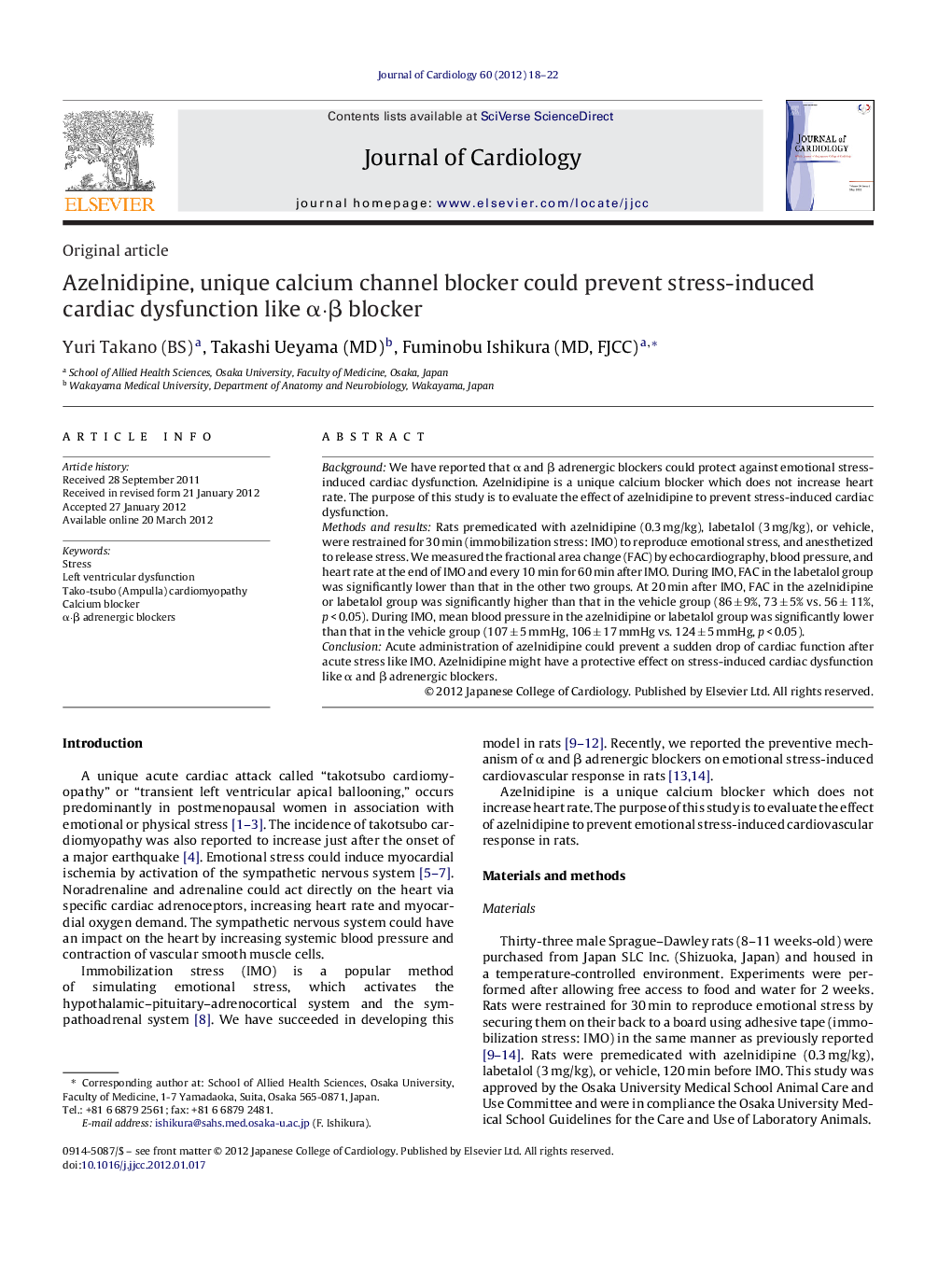| Article ID | Journal | Published Year | Pages | File Type |
|---|---|---|---|---|
| 2963278 | Journal of Cardiology | 2012 | 5 Pages |
SummaryBackgroundWe have reported that α and β adrenergic blockers could protect against emotional stress-induced cardiac dysfunction. Azelnidipine is a unique calcium blocker which does not increase heart rate. The purpose of this study is to evaluate the effect of azelnidipine to prevent stress-induced cardiac dysfunction.Methods and resultsRats premedicated with azelnidipine (0.3 mg/kg), labetalol (3 mg/kg), or vehicle, were restrained for 30 min (immobilization stress: IMO) to reproduce emotional stress, and anesthetized to release stress. We measured the fractional area change (FAC) by echocardiography, blood pressure, and heart rate at the end of IMO and every 10 min for 60 min after IMO. During IMO, FAC in the labetalol group was significantly lower than that in the other two groups. At 20 min after IMO, FAC in the azelnidipine or labetalol group was significantly higher than that in the vehicle group (86 ± 9%, 73 ± 5% vs. 56 ± 11%, p < 0.05). During IMO, mean blood pressure in the azelnidipine or labetalol group was significantly lower than that in the vehicle group (107 ± 5 mmHg, 106 ± 17 mmHg vs. 124 ± 5 mmHg, p < 0.05).ConclusionAcute administration of azelnidipine could prevent a sudden drop of cardiac function after acute stress like IMO. Azelnidipine might have a protective effect on stress-induced cardiac dysfunction like α and β adrenergic blockers.
